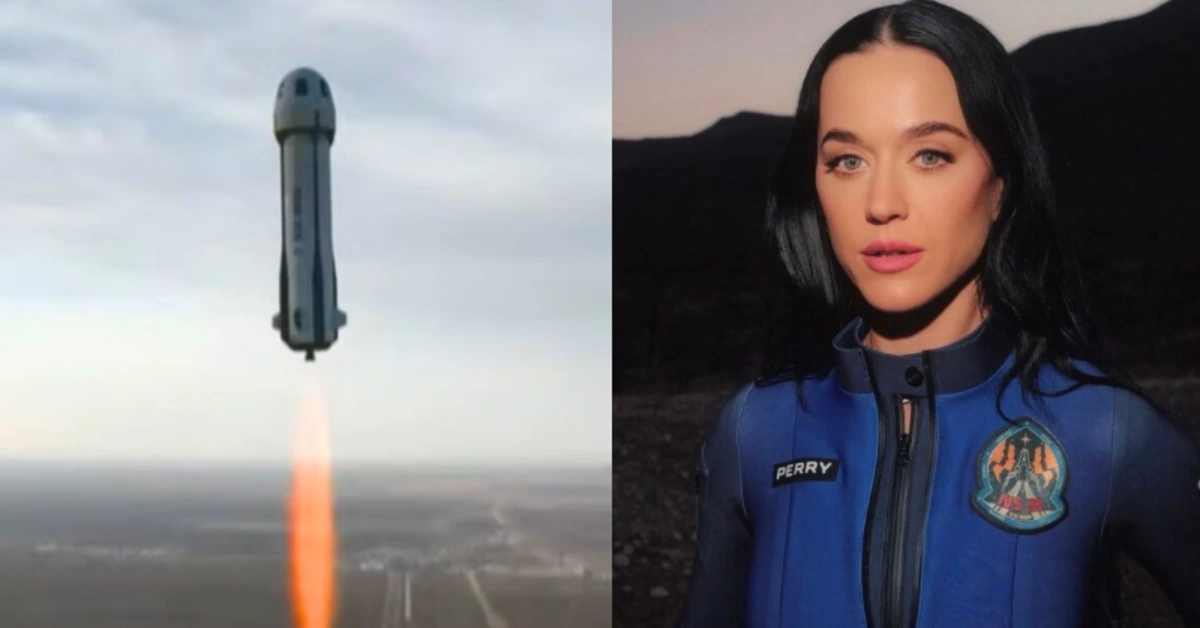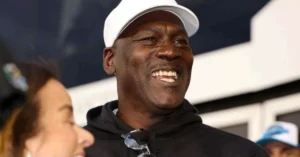Katy Perry joined a historic all-female crew on a Blue Origin space mission, soaring to the edge of space for a brief but groundbreaking journey. The 10-minute flight, marking the first all-women space crew since 1963, sparked varied reactions among Korean netizens, with some praising the milestone and others questioning the environmental and social implications of space tourism.
The event has stirred debates about privilege, innovation, and responsibility, reflecting broader conversations about humanity’s future in space. Here’s everything you need to know about the mission and the discussions it inspired.
The Historic Blue Origin Mission
On April 14, 2025, Katy Perry, alongside five other women, launched into space aboard Blue Origin’s New Shepard rocket from West Texas. The mission, named NS-31, lasted 10 minutes and 21 seconds, crossing the Kármán line—the internationally recognized boundary of space at 62 miles (100 kilometers) above Earth.
The all-female crew included:
- Lauren Sánchez, journalist, pilot, and fiancée of Blue Origin founder Jeff Bezos, who led the mission.
- Gayle King, CBS Mornings co-host and Emmy-winning journalist.
- Aisha Bowe, former NASA rocket scientist and STEM advocate.
- Amanda Nguyen, bioastronautics researcher and civil rights activist.
- Kerianne Flynn, film producer known for documentaries like This Changes Everything.
The flight was fully autonomous, requiring no manual piloting. The crew experienced about three minutes of weightlessness, marveling at views of Earth and the moon. After landing, Perry kissed the ground and held up a daisy, a tribute to her daughter, Daisy, whom she shares with Orlando Bloom. King also kissed the ground, expressing relief and awe.
“I just want to have a moment with the ground, just appreciate the ground for just a second,” Gayle King said after exiting the capsule.
The mission marked Blue Origin’s 11th crewed flight and the first all-female spaceflight since Valentina Tereshkova’s solo mission in 1963 aboard Vostok 6. Celebrities like Oprah Winfrey, Kris Jenner, and Khloé Kardashian attended the launch, adding to the event’s high profile.
What Happened During the Flight
The New Shepard rocket lifted off at 8:30 a.m. local time, reaching an altitude of approximately 350,449 feet (107 kilometers). The crew spent their time in zero gravity floating, taking photos, and admiring the view.
Perry brought a daisy as a symbol of resilience, reflecting her daughter’s name and the flower’s ability to grow in tough conditions. She also sang Louis Armstrong’s What a Wonderful World during the flight, a moment that resonated with her crewmates.
“It’s not about singing my songs, it’s about a collective energy in there, it’s about us, it’s about making space for future women and taking up space and belonging, and it’s about this wonderful world that we see right out there and appreciating it,” Katy Perry said after landing.
Amanda Nguyen carried a hospital bracelet from after her sexual assault, using it as a “zero-G indicator” to mark weightlessness and symbolize healing. Aisha Bowe held up a patch representing the Bahamas, honoring her heritage. Lauren Sánchez reflected on Earth’s beauty, noting its quiet yet vibrant appearance.
“I looked out of the window and we got to see the moon. Earth looked so quiet, but really alive,” Lauren Sánchez said tearfully.
The capsule landed safely with parachutes, greeted by Jeff Bezos, who opened the hatch. The crew’s emotional reactions—ranging from Perry’s ground-kissing to King’s gratitude—underscored the transformative nature of the experience.
Korean Netizens’ Diverse Opinions
The mission sparked lively discussions on Korean social media, particularly on platforms like theqoo. Netizens expressed a range of views, from criticism to curiosity, reflecting broader concerns about space tourism and privilege.
Some netizens criticized the environmental impact and exclusivity of the trip:
- “This might be peak stupidity—spending money in the most Earth-damaging way possible.”
- “Private jets, this, that—so much carbon emissions. They’re insane.”
- “Do rich people think the Earth is theirs alone?”
- “I guess it’s through things like this that humanity advances into space… though most of us without money will just be left behind on a polluted Earth.”
Others questioned the purpose of such brief trips:
- “So she’s just stepping out of Earth for a bit, huh.”
- “Unless it’s for research purposes, this feels kinda off… poor Earth.”
- “Even if someone paid me, I wouldn’t want to go. I’ll just disappear when the Earth ends.”
However, some defended the mission, seeing it as a step toward progress:
- “Yeah, pollution makes me mad too, but tourists like her help fund space research and development… If they don’t do things like this, the private sector might have to give up on space R&D altogether.”
- “Wait, is that how it works??? So it’s not something we should automatically criticize… This is making me think.”
- “It’s a space tourism package, so what’s the problem?”
- “Ah, I guess it could be seen that way too… I’d probably want to go too, if I had the chance.”
Many acknowledged the historic all-female crew:
- “I looked it up, and apparently this flight is all women. It’s the first time a civilian spaceflight is being done with only women.”
Some expressed personal envy or support:
- “I’m jealous.”
- “Unnie, please release new music too.”
Despite the debates, netizens universally expressed relief at the crew’s safe return.
Significance of the All-Women Crew
The mission stood out for its all-female composition, a rare milestone in space exploration. Only about 15% of the over 700 people who have traveled to space are women, making this flight a powerful statement.
Lauren Sánchez curated the crew to inspire future generations, emphasizing diversity and achievement. The group’s custom Monse-designed flight suits, tailored for women, added a modern touch to the mission’s symbolism.
“I think the suits are elegant but they also bring a little spice to space,” Lauren Sánchez told the New York Times.
The crew’s actions—like Perry’s song choice and Nguyen’s symbolic item—highlighted personal and collective empowerment. Aisha Bowe, set to be the first Bahamian in space, emphasized STEM opportunities for underrepresented groups.
Broader Context of Space Tourism
The flight reignited debates about space tourism’s role. Supporters argue it funds innovation, with private companies like Blue Origin advancing reusable rocket technology. Critics, including some Korean netizens, highlight the environmental cost, noting rocket emissions contribute to climate and ozone issues.
The mission’s high-profile nature—amplified by celebrities like Perry and King—drew both admiration and scrutiny. While some saw it as a joyride for the wealthy, others viewed it as a stepping stone for broader access to space.
“Our civilisation needs to expand beyond our planet for so many reasons,” Professor Brian Cox told the BBC in 2024, supporting commercial space ventures.
Blue Origin has flown 58 passengers since 2021, including notable figures like William Shatner and Michael Strahan. Ticket prices remain undisclosed, fueling perceptions of exclusivity.
Reflections from the Crew
Each crew member shared unique takeaways. Gayle King, who feared flying, called it a life-changing step outside her comfort zone.
“I stepped out of my comfort zone in a way that I never thought was possible for me, and now that I’ve done it, I really do feel I can take on anything,” Gayle King said.
Katy Perry described the experience as deeply emotional, hinting at future creative inspiration.
“It is the highest high, and it is surrender to the unknown, trust. … I couldn’t recommend this experience more,” Katy Perry said. “Oh, for sure, 100%,” she added when asked about writing a song about it.
Amanda Nguyen spoke of healing, while Kerianne Flynn was left nearly speechless by the view. The crew’s reactions underscored the mission’s personal and collective impact.
To get instant updates on this space mission, Allow notification from VvipTimes.































